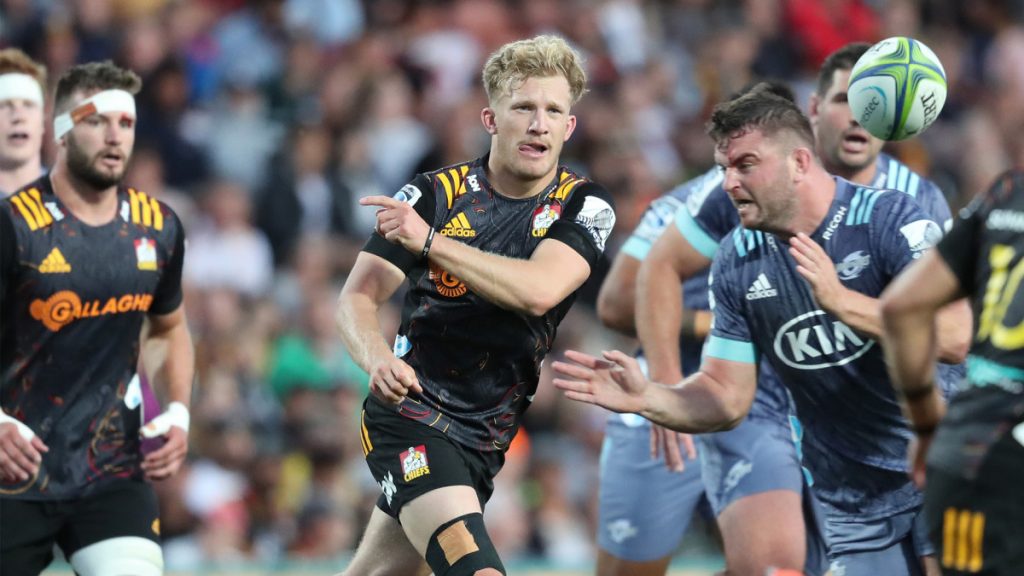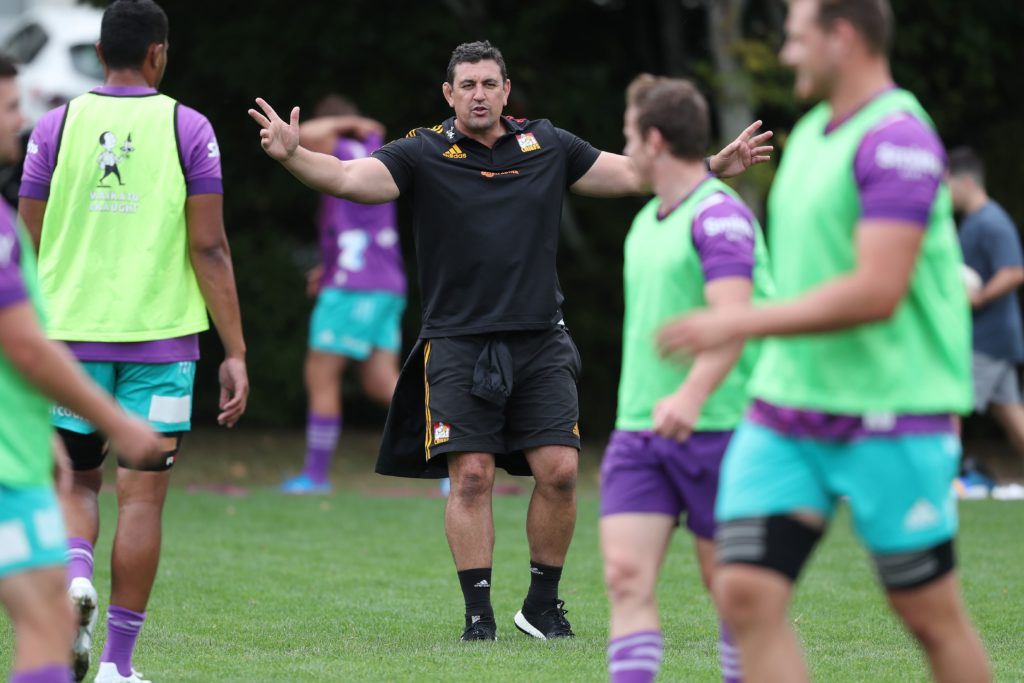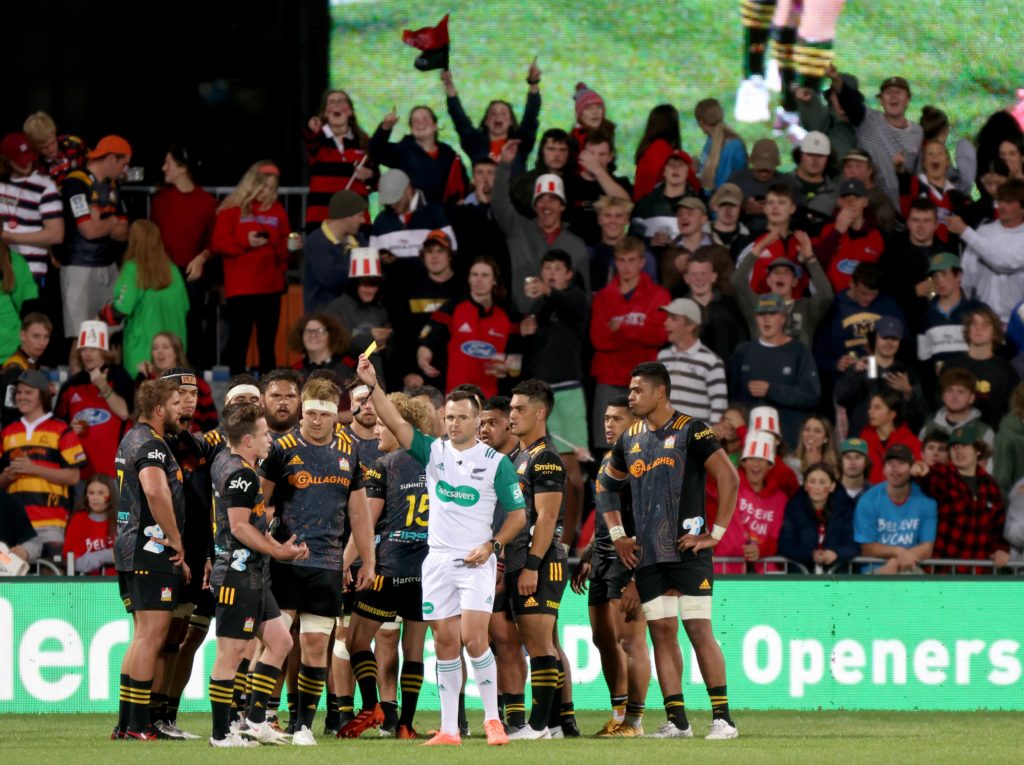As a franchise, the Chiefs need not look much further past themselves to really understand their current woes in Super Rugby Aotearoa.
From a perspective based purely on results, it just hasn’t clicked for the Chiefs recently and now they’re really staring down the barrel.
The current record reads 0-11, equaling the worst losing streak for a New Zealand side in Super Rugby’s long and illustrious history. The Waikato-based franchise has never been in worse shape.
It doesn’t really matter if they can get up against the Hurricanes this weekend and avoid their 12th straight defeat. Narrowly escaping this unwanted record doesn’t negate the fact that some hard questions need to be asked about what steps this team needs to take to be a genuine contender each week, where fans and pundits have some semblance of what to expect.
Right now, the sad truth is that trying to predict what type of Chiefs team you’re going to get is like an exercise in whack-a-mole. The unexpected always pops up, and more often than not, the team isn’t hitting the mark for anything close to an 80-minute performance.

The optics just don’t tell the real story of what’s going on. All but a couple of the 11 straight defeats have been tough-fought affairs, and from that perspective, the Chiefs are right in the fight.
Nobody should question the pure skill, prodigious talent, and match-winning abilities that some of the players in this team possess. When it clicks, the Chiefs would be hard for any team to beat, but it’s just not clicking right now despite the occasional flickers of light on display.
For how long can hard-working rugby journalists string credible stories together when the players make the same promises of “not being far away” each week following yet another loss? For how long can being on the wrong side of the referee’s whistle be contributed as the turning factor?
It becomes incredibly tedious for all involved.
There can be no denying that the Chiefs have had some torrid officiating calls go against them, but you’ve got to make your own luck in this business.
When a team is consistently one of the most penalised in the competition, often for clear and obvious infringements, is it any wonder that the same team isn’t getting the rub of the green in some of those 50/50 instances?
There can be no denying that the Chiefs have had some torrid officiating calls go against them, but you’ve got to make your own luck in this business.
Take the latest loss to the Crusaders, for example. There has been a heavy focus on the penalty try awarded shortly after halftime in which a forward pass had been missed.
Chiefs co-captain Brad Weber was wrongly ruled to have touched the ball prior to Richie Mo’unga’s pass, and according to officials, that was what had trajected the pass forward.
It was the wrong call, as confirmed by New Zealand Rugby referee boss Bryce Lawrence: “The incident at Orangetheory Stadium, where Brad Weber was yellow carded and a penalty try awarded; based on that captain’s referral, it should have been a successful review because on our review we saw that the ball got knocked out of Richie Mo’unga’s hand, but by Brad Weber hitting Richie’s hand, not the ball. So that was another error that we made.”
An injustice occurred and it’s correct that (had the TMO made the correct decision and ruled a forward pass) play should’ve stopped prior to Weber making that tackle, but it doesn’t shield the fact that the infringement was still deserving of a penalty try.
In the Chiefs case, too often have they infringed on occasions that are clear and obvious. Too often have these infringements rendered them powerless to turn the tide of momentum.
You’ve got to feel sorry for interim head coach Clayton McMillan who has been quick to say that the Chiefs are creating their own pressure far too frequently.

Whatever happens from here, the Chiefs need to rally behind their man and ensure he doesn’t take a single bit of flak for the difficult results that are bound to continue.
Continuity is lacking in the Waikato, and it could be argued that leadership from the Chiefs board of directors shouldn’t survive some of the deserved scrutiny it’s managed to squash so far.
Current CEO Michael Collins should be in the spotlight right now. The 46-year old might be a good rugby man with some pedigree, but his inexperience as a Super Rugby CEO has showed at times.
The franchise has had three different head coaches in three years, but the terms in which Warren Gatland came in are as curious now as they were back in 2019.
Remember the man who was supposedly in charge before Gatland came riding in on his white horse? That man was Colin Cooper.
Cooper’s time with the Chiefs was a curious one at best, and the prevailing opinion is that he didn’t command enough success on the results front or enough respect amongst his players, especially after the Chiefs went 0-4 to start their 2019 campaign.
Cooper departed swiftly toward the latter end of 2019 and was paid out his final year on contract, presumably to make way for Gatland once the Chiefs got a whiff that the apparent best coach in world rugby could be available and interested.
At the time it seemed like the right decision. Not so much now.
That brings us back to the Chiefs CEO. Collins and his entire administrative team knew what having Gatland at the franchise would mean from a morale perspective, and if the players were also all for it, the deal simply had to be done.
The franchise has had three different head coaches in three years, but the terms in which Warren Gatland came in are as curious now as they were back in 2019.
This allowed Gatland to come in on his own terms, further damaging the continuity factor at the Chiefs who already have a high turnaround of players coming and going, plus an ever-changing assistant coaching make-up that has included Neil Barnes, Kieran Keane, Andrew Strawbridge, Tabai Matson, Roger Randle, and David Hill since 2016, each with their own different personalities which rumour has it have been known to clash.
It also taught some players a lesson. If you have enough of a name in rugby, you really can dictate the terms. A year before Gatland arrived, local media outlets were reporting that Cooper had found himself on the outer with some of the senior Chiefs players leading into 2019. That same season, assistant coaches took a more hands-on approach.
Change can be a good thing in sporting administration. But too much of it can quickly cause problems, and where it comes from is also hugely important. When players start to dictate how things are managed from a coaching perspective, problems follow quickly after.
It would have been a safer bet to keep Cooper for his full term as head coach through until the end of 2020. If some of the senior players weren’t prepared to work with him properly and give him the respect that his coaching credentials commanded, then Collins should have stepped in, rather than buying into the media narrative that something had gone awry by discussing publicly anything to do with Cooper’s place at the franchise.
By the end of 2019, Cooper was gone. Within days it was announced that Warren Gatland would be the next head coach, but with one key caveat. Gatland was going to be unavailable in 2021, just the second year on his Chiefs contract, due to his commitments with the British & Irish Lions in South Africa.
An arrangement like that might be passible in provincial rugby, but certainly not at this level, regardless of how much pedigree the coach might have up North.
Some of the new team training structures of the new era have reportedly suited senior players to a tee, meanwhile the results on the park have taken the worst nose dive in the Chiefs’ 26-year history.

It’s also fair to argue that some of those senior players aren’t performing nearly as consistently as they were in seasons prior, and there is yet to be a feasible explanation for some of the drops in mental intensity that have been on display when the Chiefs have blown some big leads in games.
Contrasted to Colin Cooper’s reign as head coach, where the Chiefs won 18 of their games and lost 12. the Warren Gatland era (with Clayton McMillan playing a cameo) has so far netted just four wins and 11 defeats.
What scenario would really be sitting better at the Chiefs? The current situation just doesn’t pass the sniff test.
The enduring wait is set to continue. There are some flickering signs of light here and there, but trying to argue that the Chiefs are going to be a force of consistency now or any time in the near future is a truly difficult task.
The senior players of this team need to realise their role. Let the coaches coach, let management manage. It will take a team effort, one where everyone needs to stay in their lane.


Comments
Join free and tell us what you really think!
Sign up for free